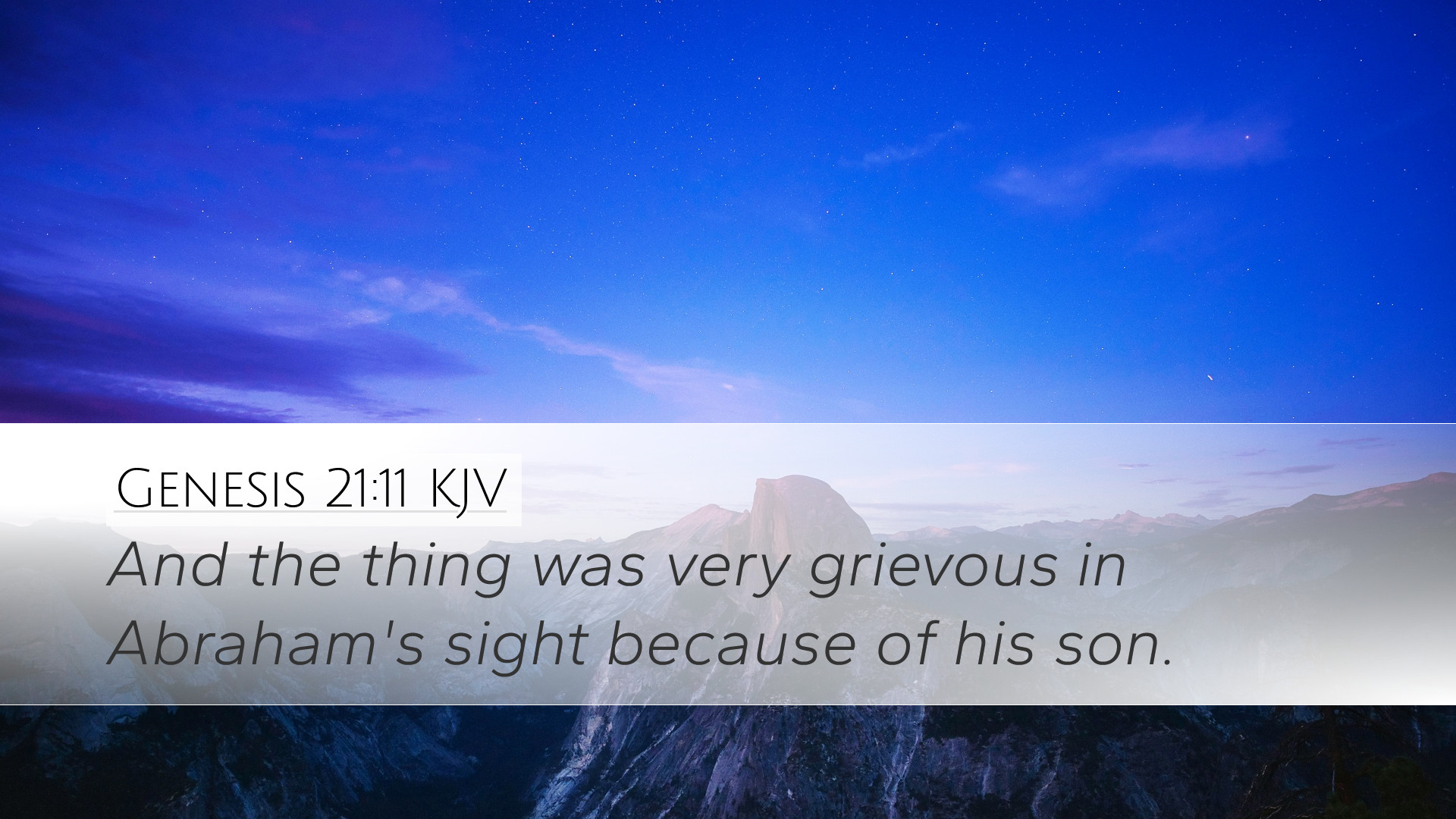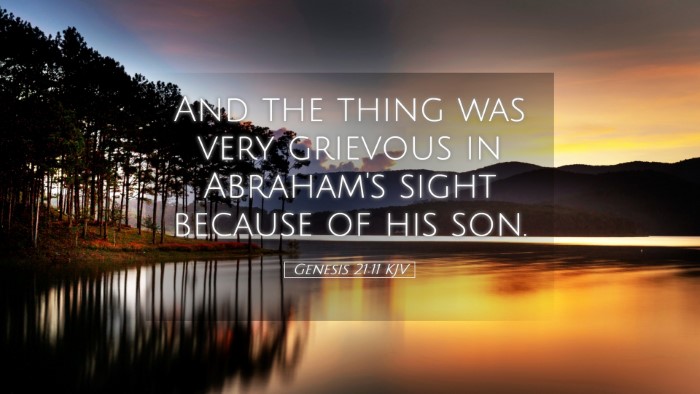Commentary on Genesis 21:11
Genesis 21:11 states: "And the thing was very grievous in Abraham's sight because of his son." This verse captures a pivotal and deeply emotional moment in the life of the patriarch Abraham, as he faces a profound familial and ethical dilemma regarding his son Ishmael.
Contextual Overview
This verse occurs in the broader narrative of Genesis 21, where God fulfills His promise to Abraham and Sarah with the birth of Isaac. Following this miraculous birth, tensions arise between Isaac and Ishmael, the latter being the son of Hagar, Sarah's Egyptian maidservant. The interaction between these characters serves as a vital examination of divine promise, human relationships, and the complexities of parenthood.
The Emotional Weight of Abraham's Decision
From the commentaries:
- Matthew Henry: Matthew Henry emphasizes the grief felt by Abraham in this verse, suggesting that it reflects a struggle between natural affection and divine command. His concern for his son Ishmael highlights the profound emotional toll that such decisions can have on a father.
- Albert Barnes: Barnes notes that the term "grievous" captures not only Abraham's sorrow but also his moral conflict. It illustrates the societal and emotional consequences of dichotomous loyalties—between Ishmael, the son of his flesh, and Isaac, the son of the promise.
- Adam Clarke: Clarke elucidates the depth of Abraham's distress, explaining that this was no merely parental concern, but a significant theological and spiritual crisis, as it is intertwined with God’s covenantal promises.
The Significance of Ishmael
Understanding the character of Ishmael is critical in this narrative. He represents not just Abraham's firstborn son but also a legacy of human endeavor and misalignment with divine intention. The following points are significant:
- Theological Implications: Ishmael’s role can be seen symbolically as representing those who, although born out of divine promise, may not fully embody the covenant of God.
- Human Relationships: The dynamics between Abraham, Sarah, Hagar, and their children illustrate the complexities of human relationships when intertwined with divine purpose.
- Legacy and Future Implications: Ishmael would later become a figure of great historical significance, leading to the understanding that the actions taken in this moment would resonate through generations.
Application for Pastors and Theologians
This passage serves as a poignant reminder of the interplay between divine commands and earthly emotions. The struggles Abraham faces are relatable and provide a rich ground for pastoral reflection:
- Guidance in Leadership: Pastors may draw on Abraham’s experience to address the complexities of leadership, especially when making decisions affecting individuals’ lives.
- Human Emotion in Ministry: Acknowledging the emotional weight of ministry work can help pastoral leaders connect with their congregations more authentically.
- Trusting in God's Plan: Encouragement to trust God's overarching plans even when faced with difficult personal and spiritual decisions is a key takeaway.
The Role of Divine Intervention
In response to Abraham's grief, God reassures him, ultimately instructing him to heed Sarah’s voice regarding Ishmael. This divine intervention provides critical insights:
- Divine Assurance: God affirms the importance of Isaac in the covenant, reassuring Abraham that Ishmael will also be cared for but in a different future. This shows God’s comprehensive nature in providence.
- Revelation of God's Plan: The narrative reveals God’s sovereign plan, emphasizing that His promises prevail even amidst human failings and relational strife.
Conclusion
Genesis 21:11 profoundly speaks to the human condition, the emotional struggles inherent in familial relationships, and the overarching narratives of God’s promises. It invites pastors, scholars, and theologians to reflect on their own struggles and the larger narrative of divine fidelity. Understanding this verse through a multi-faceted lens of emotion, leadership, and covenantal theology enriches our interpretations and applications of Scripture in the modern context.


